Stop-Zemlia is the first feature film of the young director Kateryna Gornostai. Shot in Ukraine, the film explores the feelings and questions of young high school students prey to their future, but also to the present time, love and friendship.
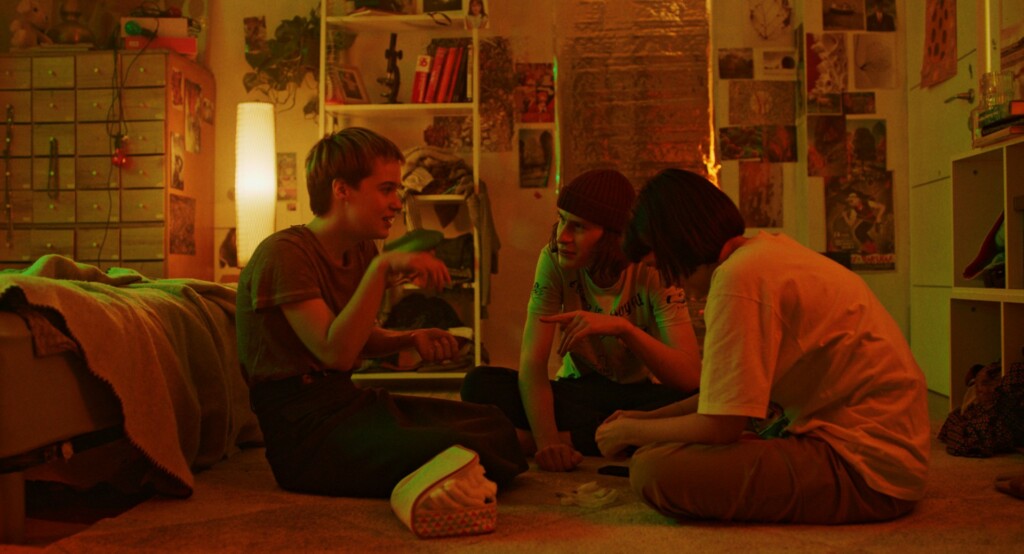
Intertwining film and documentary formats, we take turns following each student of a senior class. The plot is woven around Masha and her friends, and Sasha, with whom Masha is in love. The film is far from being a first academic film and Kateryna Gornostai manages to combine two genres in an intimate exploration of each protagonist and their feelings, of the relationship with others – family, friends – at this age when we have got more questions than answers.
Beautiful shots answer each other in this feature film, whether it’s Sasha filmed from the front, moving forward with the rest of her class, or Masha and the other girls filmed in the same way. Alternating close-ups on details, such as facial expressions, a conversation on the cell phone and wide shots, the film explores the personal emotions but also the emotions we may feel within a larger social group.
Implicitly, the film says a lot about the Ukrainian social and political context, touching on the difficulties of finding a place in higher education but also evoking the Donbass War through Senya’s feelings during a shooting session.
But this feature film is above all a film about young people and a film for young people. Through personal stories to which teenagers can compare themselves, Kateryna Gornostai delivers a message of hope and comfort, which is summed up in the film’s subtitle “If you don’t dare, you’ll never know“.
We have met Kateryna Gornostai and talk a little more about her film at the 2021 Berlinale.
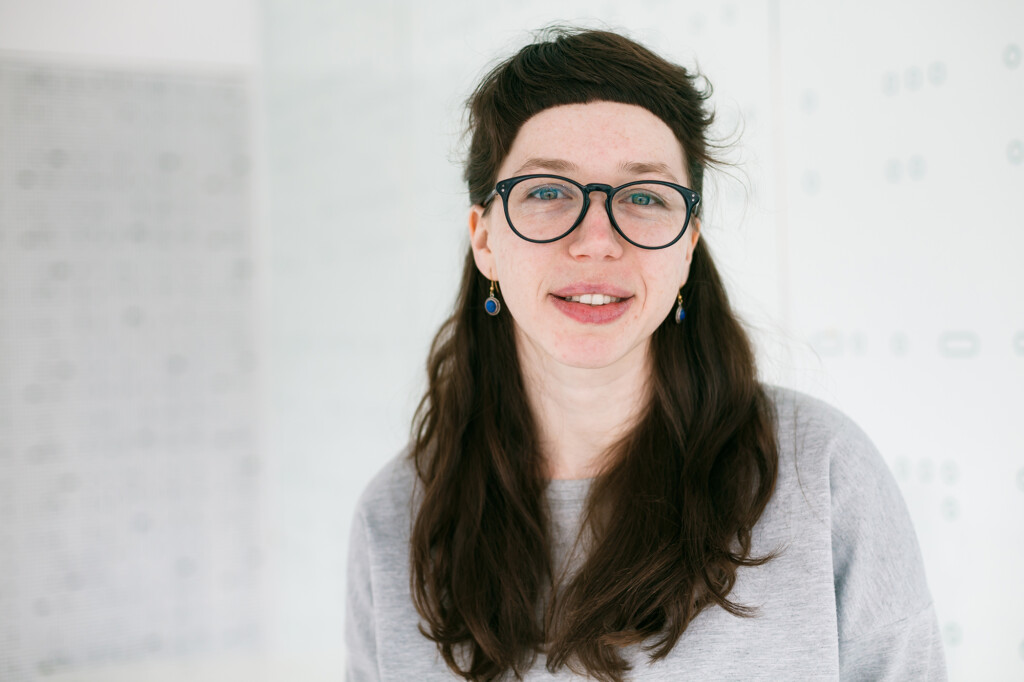
Le Mag Cinéma -To begin with: thank you. I really liked this movie about teenage years and the feelings linked to it. The way you linked all these stories in a puzzle format and the combination between movie format and documentary format worked a lot, and bring an accuracy to this subject.
Stop-Zemlia is your first film. After studying biology, you switched to film. Could you tell us more about your career path?
Kateryna Gornostai : Well, when you think about what you gonna do after school, you need to find a university, and you don’t know what to do in term of profession. I knew I wanted to shoot or photograph, but we have only faculty of journalism in master program in Ukraine. So we need to do at first a bachelor program. And I was really afraid not to be admitted in faculty that’s why I choose Biology because it’s not really popular. It was really hard time for me because I had to work hard. And I realize that biology wasn’t something I could do even if I love sciences. That’s why it was easier for me to deal with the biology teacher in the movie: I could understand the material. And then after my journalists studies I realized that I couldn’t neither be journalist. So I decided to go somewhere else, in an audiovisual school. My teacher of cinema has been a powerful figure for me.
And about the movie that I made, it’s kind of autobiographical one, but not to be only into the past, I decided to make a fiction that recreates this kind of feelings and environment.
Le Mag Cinéma -About this subject, it was one of our questions: can we speak of an autobiographical movie? And in another way, we can see in the end credits that the young actors have almost all the same name in the film as in real life. So in what measures is it an autobiographical movie and in which size it is their own stories through the movie ? How did you met them and how did you work with them ?
Kateryna Gornostai : I guess it’s the more interesting topical of the film. For the first script it was more autobiographical movie than it becomes after. Because at some points it was interesting for me to change details from the script, and the most changes happened when people came into this story.
A casting for the whole group was almost a year. We were looking in schools for people interested and shy enough. After that, we had this kind of interviews around them and it was really interesting time for me because some details in the interview came into the script actually.
But the script was written in a way that characters in the script were figures, or kind of functions: all of them were talking with me voice and my line so It was schematic in a way. And then when we found our cast, for two months, three times a week we were together. They didn’t know the script at that time and the role they will have but we did some kinds of actors’ practices like dancing, singing, documentary theaters, talking a lot and doing some sorts of documentary. This is the process to know them better: for us to know them better but also for them to know each other’s better.
After this laboratory ends, we finally get the script and the roles and at that point of time we created with them all the characters and all of them has a background story. And sometimes I have send the story to an actor and he was like “Oh that’s really similar to my real life”. Because I knew them well at that point of time. It was a great work with them. After that, when the character appears in the script, they changed it a lot in terms of speaking, of treatment. It was really important for the film to looks real and finally the script gained this kind of realistic view with theses exchanges. We had a lot of improvisation and it was really important not to change their names: if you have twenty-five people and need to change all the name, it’s complicated. Keep the name was a way to keep relax and be themselves in few ways.
Le Mag Cinéma -The discussions you had in this white background during the movie are improvised?
Kateryna Gornostai : It’s not actually the real real them. There has real part of the real them but it was up to them what to tell and what not to tell. This kind of interviews are with the characters more than the real persons. But I really want for them to tell or not to tell what is the truth and what was fiction up to them. It was something between truth and fiction. But fiction is close to their own life in many ways. And it is interesting also not to know what is truth or fiction. But it was totally improvised, it was shoot as real interview, there were nothing like repeating. It was for play to stop and it was just a talk between me and them. I became friends with them and we met them during the cast in form of interviews. And it was interesting to do an interview after all that time past between the cast and the beginning of the movie.
Le Mag Cinéma -What was their reaction and your reaction when you knew that the movie was in competition for the Berlinale, in the Generation category?
Kateryna Gornostai : It was dream come true. Berlinale is really special festival for me because it’s amazed on how it works with the audience actually. It’s really a festival for the films’ professional but also with the audience. People can watch films there, it’s really important on such a big festival to be able to watch films. So yeah, it was a dream of mine to go to Berlin. Unfortunately this year it’s gonna be online and I was really sad when I found out it will be like that, but strange times actually.
Le Mag Cinéma -Coming back to the film. The title “Zemlia” means earth in english. Is it a choice on your part not to have wanted to translate this title? We understand within the film that this title refers to a game between high school students. What was the willingness behind the choice of this title?
Kateryna Gornostai : I really liked this game as a part of the film. But I was aware that it is a game that not everybody plays in Ukraine. That was the reason we didn’t translated because we couldn’t translate it literally by “stop the planet” because it would look strange during this period of pandemia, I was afraid of this connotation which may be linked to the quarantine.
In Ukrainian this term can refer to “stop the planet” but also “stop the moment”, stop the present moment or something like that. I really wanted to keep this title.
The game from my neighborhood was a game we played as children, because it’s not a teenage game actually, it’s more like children one. This is the game when you have this person looking for everybody and this person is blind. Everybody else should be up above the ground, and if you want to move to a place to another by the ground the person shoot “Stop-Zemlia!” and you need to freeze.
So actually, I don’t like the word metaphor but I don’t like to explain on another word. It’s interesting thing to look in this state of Masha for example and Sasha too, and all the things they experienced at that time. It’s winter time when you can do anything because it’s really cold and dark and you are at home a lot, and you don’t have any places to go. Nothing is really happened in your life and you are waiting for things to come. And this frozen moment is evocated in the title.
Le Mag Cinéma -The film implicitly explores a lot of subjects regarding the problems of adolescence. But also the social and political context of the Ukraine: the difficulty of higher education, Senya’s fear of the sounds of shooting following an old trauma (if I am not mistaken, the situation in the Donbass?), etc. Is it different to be young in Ukraine compared to other European countries according to you?
Kateryna Gornostai : Actually I don’t know because I’ve never been a teenager in other European countries. But about Ukrainian part, we really wanted to have this context in the movie about modern history. A lot of people who came to interview where replaced persons from the East of Ukraine where the war is actually going on. People that were replaced were really little, really young, like ten years, not really remember on how it was there. But now they live in Kiev and attending school since six years it’s a great deal of time for teenager and it’s a completely new life for Senya to be in Kiev. I really wanted to hit there as a small small part of the context: it’s not a central part of the piece but I wanted it to be a part of Senya’s feature just to be there. For him to remember on how it was and to have this flashback.
And as you know we had this Revolution in 2014 and for us people that are thirty or more years old it was great deal for personal history and history of the whole country actually. But them were really small when that happened. And theses teenagers didn’t know how it was. And this is one of my really great fear that they don’t know a lot about information at that time. Because of that for example they misunderstood the starting of the war. Some of them think that the Revolution started the war, but It’s not actually, and it’s complicated for them to understand in the whole by not being witnesses of theses historical events. But there is still a lot of political problems here theses days. And I don’t know, they are teenagers and they maybe don’t interest a lot about it but we tried to talk a lot with them about that. And I’m happy that this movie is 99% or 100% in Ukrainian language, because it’s not so common thing for them.
And I believe that maybe it’s something common for young people all around the world: I mean it’s now strange times where information is all around you. There is a great deal of information and because of that they don’t know what to do with that because you can do anything and they are really nervous and anxious about that. Sometimes it’s so frustrating that they don’t even try to do something at all. Level of anxiety of young adults are high now because of this. They don’t want to go to the university just to be at the university. For us it was interesting to be part of the student life more than to gain some profession. But for them it’s not like that. They want to do something important since the beginning. And this is the problem because you don’t know what is important at that time. And they don’t want to be part of the student life because they think they are already part of internet: this virtual life. And this is really strange because it’s not real life but it gives them the feeling of being together but it’s not.
Le Mag Cinéma -You tried to show this on the movie by the use of the mobile-phone. Like when we see Masha talking to this stranger on Instagram, but also with separated plans of Masha and her friends communicating in the intimacy of their owns houses while a party is going on with other students.
Kateryna Gornostai : We tried not to be all around. We really wanted to focus the point of the movie on the personal body experience, to be around people, not to be just inside the phone but to be together in terms of touching, of speaking and to be close of each other. It was the most important for us, because these experiences are really important for them. And in our times, we are losing these experiences because we are at home with no connexion with others peoples and we pretend that it’s ok.
Le Mag Cinéma -One sentence from the film particularly caught our attention. When Masha asks if what she feels will fade in adulthood or if we keep this feeling of discomfort with love and doubts within us. Is making a film about self-discovery and daring to make choices a way to show these young people that they are not alone?
Kateryna Gornostai : That was completely one of the intentions that I really wanted to be in the film actually. For example, for young adults to be in the cinema and that after the film feel that all this kind of feelings will be passing away, to feel that “I can do anything with my life, that I can try to do it”. I really want hopes for people go through their life and do something. If it’s there I’m really happy, because it was really crucial thing for me. I wanted them not to be alone and going though there things.
Le Mag Cinéma -if you had to summarize for our readers the message you wanted to convey with this film, what would it be?
Kateryna Gornostai : Summarize is the hardest thing, I think. I’m really looking and hoping the audience to be open. It’s not a conventional teenage story that we are expecting to see. And I’m really hoping that the audience will fall in love with these kids as we -the crew- felt in love with them.
As the autobiographical thing that we were talking at the beginning, I wanted it to be autobiographical not just through my story but for the all the crew and for the cast too. I believed it happened like that.
Thank you to Kateryna Gornostai and Claudia Hegner for their availability.

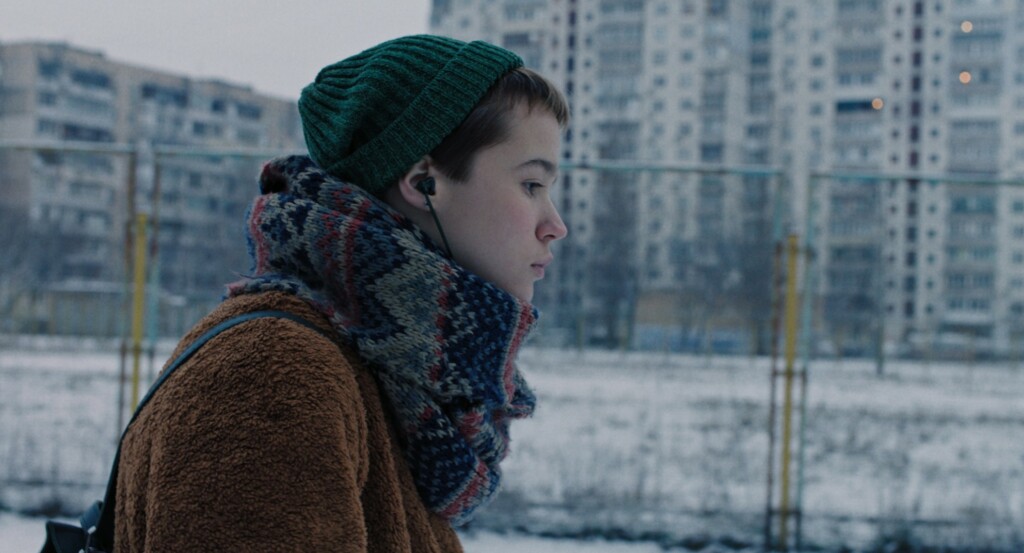
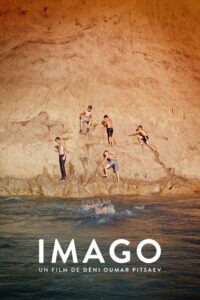
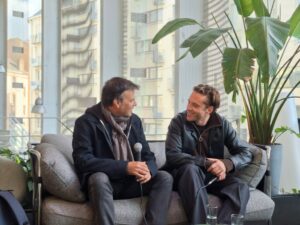
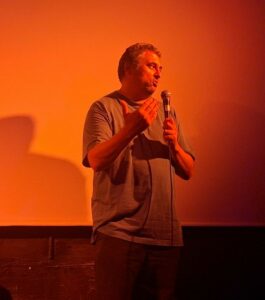
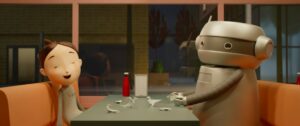
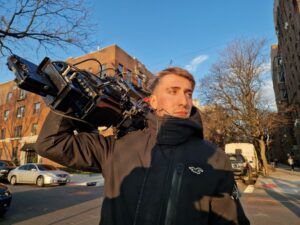

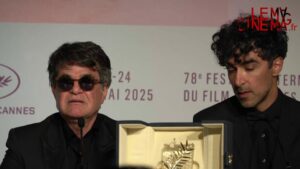
Be First to Comment